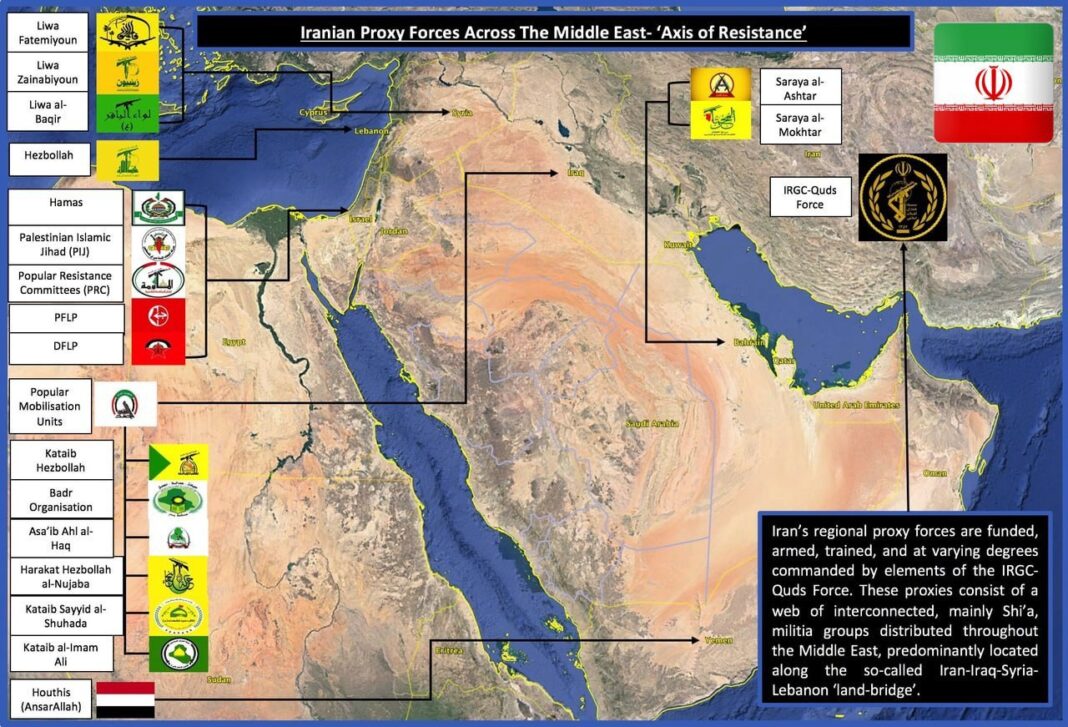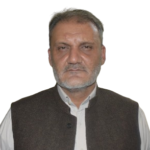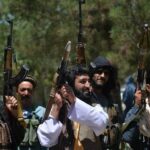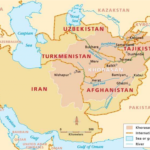While the world waits to see how, and if, Israel responds to the 14th April Iran attack, many things must be considered in the scope of the potential conflict that would emerge after an Israeli retaliatory attack.
First, while the US has already put its statement out publicly that they will not support Israel striking Iran directly, that does not mean they will be allowed to step back, due to the strength of the Israeli lobbyists in Congress and the House of Representatives.
Interestingly, the Arab States of UAE, Bahrain and Jordan have already informed that US that their territories should not be used to defend Israel, if there is a counter strike from Iran.
That takes a great deal of US military support off the table, since it was these territories were used to shoot down drones and missiles during the 14th April attack. With them stepping back, in fear of a revenge attack from Iran, the US stands with limited allies to support it and Israel.
Keep in mind, the Israel and the US are only looking at symmetrical warfare options.
For Iran, the table is set very differently.
In addition to Iran’s own armed forces, which could only be used in a limited capacity against Israel, Israel will need to plan, and counter, many proxy forces in Asymmetric Warfare.
Make no mistake General Qasem Soleimani, who commanded the Quds Force, and described by many as the “single most powerful operative in the MiddleEast” and a master of asymmetric warfare, creating groups that could be used, at will and with significant impact, against Iran’s enemies was his forte. Former Mossad director Yossi Cohen once said – “Soleimani’s strategies had personally tightened a noose around Israel’s neck.”
Quds Force, an IRGC division, was primarily responsible for clandestine military intelligence and operations outside Iran’s borders, and hybrid warfare. It oversees the various Shiite paramilitary groups across the Middle East.
The largest is Hezbollah, based in Lebanon. Hezbollah, both a political and military organization, is represented in the Lebanese government and parliament. Lebanese Shiite Muslims are the largest group in Lebanon, and Hezbollah’s armed wing is the strongest and dominant military force there. Hezbollah has more than 30,000 trained fighters with significant combat experience gained in Syria and clashes with the IDF. They have a diverse arsenal of weapons, including ATGMs, anti-aircraft missiles, artillery, armoured vehicles, and a wide range of missiles.
Sky News, just a few days ago, claimed Hezbollah had over 175,000 rockets at their disposal inside Lebanon.
The Popular Mobilization Forces (PMF) in Iraq, also known as Al-Hashd al-Shaabi, is an alliance of paramilitary groups. At least 100,000 members compensate for lack of weapons and training. The PMF fought in Iraq and Syria, and can also be deployed to fight IDF.
Yemen’s Ansar Allah, often referred as Houthis, is another powerful force, as we have seen over the past months with the attacks on shipping vessels enter the Gulf of Aden and some attacks in the Indian Ocean. The Yemenis have historically been some of the most formidable fighters in the region, with a population of 10 million and more than 100,000 in their armed forces.
Lastly, there is Liwa Fatemiyoun, a group of Afghan Shiite fighters who are also strong light infantry, with more than 20,000 members & Liwa Zainabiyoun, actively recruiting and training fighters in Parachinar, Pakistan to be dispatched to Lebanon and Syria. They’ve been active in Syria and pose a real threat to Israel as well.
Many analysts are looking at the strength of Israel’s military force, built by the United States, but don’t forget today’s wars are not about the military that you can see, but the one that you cannot…. and Iran has the strength to deliver disproportionate damage with its proxies.
Syed Khalid Muhammad, the Founder and Executive Director of CommandEleven, brings over three decades of leadership experience, guiding organizations globally in the realms of security, technology, marketing, and management. Notably, he authored "Agency Rules: Never an Easy Day at the Office," a pioneering espionage novel published in 2013. This novel holds historical significance as the first English-language espionage novel written by a Pakistani, achieving international bestseller status and currently available on Amazon.
Furthermore, Syed Khalid Muhammad has made notable appearances on several international TV channels, providing insightful analysis on security and geopolitics.
Since the establishment of CommandEleven in 2015, Khalid has expanded his expertise to encompass analysis, risk and threat assessment, and consultancy in the fields of terrorism, counter-terrorism, counterintelligence, geopolitics, and cognitive warfare. Within CommandEleven, he has successfully cultivated a comprehensive human and electronic intelligence network spanning the Indian subcontinent. Continuously growing, this network extends into various conflict zones globally, providing CommandEleven with actionable, real-time intelligence that forms the foundation of its analytical endeavors.
CommandEleven currently serves multiple clients, including corporate giants, by assisting them in analysis related to security, threat assessment, and threat mitigation strategies in Pakistan and Afghanistan.









